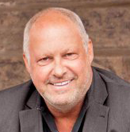
D2D sales was dying because of telephone, social media and COVID.
However it is back and now is your best bet for prospecting.
People are starving for human contact. Social media has become astronomically expense and no-call lists killed phone canvassing.
Door-to-door sales, or direct selling, is a sales approach that appears to have borrowed a lot from canvassing, a technique used to source for votes during elections. This type of direct marketing has been in use since as early as the 17th century. D2D sales involve walking from one door of a house to another, trying to sell a product or service to the person that responds.
In the 19th century, d2d sales are still crucial in real estate, home improvements, and repairs. Before developing mail order and online sales, door knocking was an effective method for distributing goods, especially outside major towns. Currently, there has been a resurgence of door-to-door selling even with the advance in technology and internet selling.
D2D sales in real-estate
You may be asking yourself, does door-to-door sales work in real estate? It is possible to generate real estate leads with a door-knocking approach. All you need is to network with the potential buyers, ask them for their contacts and invite them to open houses. To achieve this, door-to-door salespeople will need to come up with a successful real estate door-knocking strategy.
The alternatives to door-to-door selling have huge problems, and for instance, telephone prospecting is dead due to the absence of call lists. People registering in the National Do Not Call Registry brought about the lack of call lists to exclude them from telemarketing calls. Some companies opted for robocalls which were later abused and became illegal.
In terms of direct marketing through email, GDPR and other regulations make it more difficult and expensive to implement a successful email marketing strategy.
Social media marketing has become extremely expensive. Facebook and Google are working extra hard to extract maximum value out of their social media enterprise.
Door-to-door selling is back. Its revival was witnessed between 2012 and 2013, showing a 34% annual growth in position. It has become a new trend among direct-to-consumer (D2C) brands. Companies with a tough time with customer acquisition through direct marketing are now more than ever hitting the streets.
COVID and D2D sales
As COVID comes to an end, people have become more open to social contact, something they may have lacked due to the lockdown measures that limit movements and interactions. As companies continue to switch from 9-to-5 jobs to working from home, traveling salespeople now have the best chance at catching their prospects at home when they knock on their doors.
Currently, there is a unique demand for communication between one human to another. Corporates are taking advantage of this opportunity to acquiring new customers and at the same time build strong, personal, and lasting business-to-consumer relationships. Adding door knocking to your marketing mix helps a lot in coming up with a superior marketing strategy.
Face to face contact builds relationship
Door-to-door selling creates authentic connections with prospects. It is easy for traveling salespeople or drummers to customize their sales pitches based on the potential customer’s tone and body language. The advantage of human-to-human interaction is that it can quickly build rapport, establish trust with the possible buyer and make them feel comfortable.
A well-trained and experienced salesperson using the door-to-door sales approach should be able to strike up conversations and meaningful discussions with potential buyers and at the same time attract their interest in the product or real estate. The success of D2D sales highly depends on your sales ability to close the deal.
As new companies continue to join the online selling world, the competition becomes fierce. Door knocking may be a less common approach to customer acquisition; it is a highly effective weapon for any company looking to stand out in a crowded market. Personal contact is still a crucial need when it comes to selling products directly to the consumer.
The face-to-face approach provides an opportunity to inform potential customers about your product or service and, at the same time, influence their decision-making process. For some companies, a 30 to 60 seconds sales pitch may not cover all the information about the product, service, or technology used. Some prospects may want to see a demo on how certain products work. Startups will require more time to educate the people about the new offerings.
Online and social media sales is expensive
Door-to-door sales people face less competition owing that most companies are directing their efforts to online and social media marketing.
Real-time feedback is crucial in the process of developing products or services that meet the customer’s needs. The success of a door-to-door sales approach is measurable since the results are readily available and can be quantified. The results obtained from door knocking are crucial in calculating ROI, tracking progress, and making significant changes.
Understanding the customer’s pain points and pain of change does help a lot in personalizing the sales pitch and solution to their current problems. Building a relationship through door-knocking can help a lot in developing trust. You will be fulfilling the cliché that people often buy from people they like, know and trust.
Even in 2021, there is plenty of reasons why salespeople are going back to knocking on doors: Low competition, low overhead cost and creating quick brand recognition for local businesses like Realtors. You can introduce youresle with door to more people at once makes it crucial for brand recognition and awareness. In less than an hour, drummers can cover three doors by spending less than 20 minutes per house.
In some cases, one is likely to find no one at home, which is also an excellent opportunity to leave behind some information about the product or service you are offering. Suppose you wish that they contact you for business or refer someone to you, leaving behind fliers, doorknob hangers, business cards, postcards, or small gifts or treats. Some will be willing to pass along the information to a neigbor, friend or family who needs it.
It is still true today that people buy from people they know and trust. Most customers want to see the human behind a product. Door knocking is still a powerful tool in real estate and a significant number of fields. Though it is considered too old-fashioned, it has some vital benefits that you wouldn’t get from online marketing strategies such as social media, content, and email marketing.
D2D: The best sales approach is back
Door-to-door sales is still a highly effective method for acquiring new customers. More and more businesses are seeing the relevance of adding door-to-door selling to their marketing mix towards the end of the pandemic. As countries open up their economies, people have shown to be very open to social contact. This sudden change in social life creates a pleasant environment for D2D sales to thrive.
Companies currently using door-knocking in their direct marketing strategies understand that it is a powerful means of creating a customer base and increasing revenue. They use modern technology to accelerate their sales. D2D sales are more demanding, but when circumstances are right, it can be enriching. Door-to-door selling is back mainly to take advantage of the need for personal contact. It fills the gap of opportunities that came as a result of the COVID-19 pandemic.








